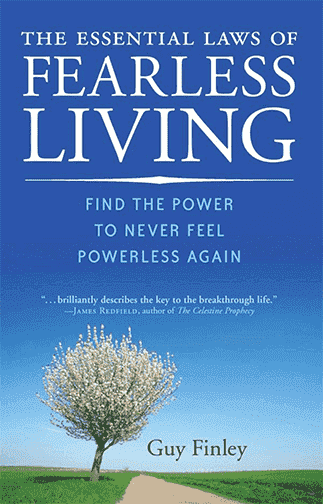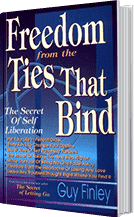Thinking / Thought Nature
-
Multi
Format
 Short Talk
Short TalkThought Can't Reconcile ANYTHING!
- Posted: 08/24/23
- Meeting: 06/21/23
- Time: 00:01:51
- 0 View
- Comments (0)
The next time that you find yourself in a stew, regardless of how practical it seems, just quietly note and ask yourself, why is there negativity involved in a practical decision? What does negativity have to do with what I need to do? If you just ask yourself that question, you'll start to see that there is always something at the bottom of what it calls practical that's pushing you to get something reconciled in your life.
-
Multi
Format
 Short Talk
Short TalkListen to This If You're Tired of Being Defeated
- Posted: 04/21/23
- Meeting: 03/26/23
- Time: 00:03:41
- 0 View
- Comments (0)
Self-realization author Guy Finley talks about how the unattended mind is the breeding ground of self-defeat. The unattended mind always goes into thought, hoping to reconcile the disturbance that thought created in the first place. Observing this dynamic as it takes place in the mind is how we rise above everything that has defeated us in the past.
-
Multi
Format
 Short Talk
Short TalkStop Overthinking
- Posted: 02/07/23
- Meeting: 11/23/22
- Time: 00:04:16
- 0 View
- Comments (0)
Stop overthinking and start seeing! In this helpful Q&A with Guy Finley he addresses the question of why we need to stop overthinking about how to solve the problems in our life and instead use disturbances to see the real problem, which is that we're addicted to thinking about ourselves.
-
 Special Lesson
Special LessonAbandon the Constructs of Thought
- Posted: 12/08/22
- 369 words
- 0 View
- Comments (0)
Imagine for a moment you're driving home from work, or wherever, and that you've just come from having a pretty rough day. As you drive along, your eyes see the road before you, but your mind is in the past. It's very busy re-running all of the day's unpleasant events.
-
 Special Lesson
Special LessonEnter Into an Unthinkably Confident Relationship with Life
- Posted: 11/10/22
- 544 words
- 0 View
- Comments (0)
Our present level of Self -- with its accumulated fears, compulsions, and doubts -- knows only one way to deal with the disturbances that upset its precarious balance. It thinks about them. It calls on the body of its collected past experiences, compares them to its current situation, and then concludes both the nature of the problem and what must be done to "deal" with it...
-
 Special Lesson
Special LessonThe Sure Way to Release Yourself from Negative States
- Posted: 04/28/22
- 717 words
- 0 View
- Comments (0)
There is no consumptive negative state in the consciousness without resistance being the "goo" it grows out of -- something black and dark pulling and pushing on you. And in the moment that dark state starts to swallow you, when you're starting to feel sorry for yourself, or you're trying to figure out what to do about something because you're asleep to yourself, all you know to do is to push back...
-
Multi
Format
 Short Talk
Short TalkBe a Thought-Dropper and Watch Anxiety Fade Away
- Posted: 03/18/22
- Meeting: 02/20/22
- Time: 00:05:02
- 0 View
- Comments (0)
In this answer to a viewer's question, self-realization author Guy Finley talks about how our own questions about what to do about the anxiety we feel actually perpetuates the very anxiety that we want to get rid of.
-
 Special Lesson
Special LessonWatch and Release Yourself from Disturbing Thoughts and Feelings
- Posted: 07/29/21
- 496 words
- 0 View
- Comments (0)
All of our life experiences have been trying to teach us a certain grand lesson: Liberation from our captive condition (whatever that may be in the moment) cannot come by further deliberating it. We can see the wisdom in doing nothing toward our own troubled thoughts and feelings when we realize that the only way not to be dragged under by these negative states is to stay...
-
 Special Lesson
Special LessonThe Relief in Being Instead of Thinking
- Posted: 06/17/21
- 476 words
- 54 Views
- Comments (0)
We're not meant to see life through our thinking. We don't need to think about what is. In fact, why do I need to tell myself what just happened? Wasn't I there? Are you jumpy? The minute that a shadow approaches, we can't see what it is, but we think something is coming based in fear, and we dive for cover! What would it be like to never have to wonder or worry about whether or not...
-
 Special Lesson
Special LessonA New Way to Meet Moments When Trouble Comes
- Posted: 01/16/21
- 579 words
- 45 Views
- Comments (0)
What's the first thing that any of us do when trouble comes? The first thing that happens when we get into trouble is that we start thinking. Our little think machine just gets geared up, and it starts to go. And it goes. Now, what is it thinking about? It's thinking about the trouble it's in and it's thinking about ways in which to get out of trouble...
-
 Special Lesson
Special LessonSecrets to Sailing Through Any Crisis
- Posted: 12/04/20
- 593 words
- 61 Views
- Comments (0)
We are deceived anytime we find ourselves busily considering all the possibilities in a fearful moment. The only possibility those busy thoughts hold as we anxiously consider fearful options is which one of them is going to make us its prisoner. And it doesn't matter which fearful thought you choose... You plant a fear seed; you will grow a fearful tree...
-
 Special Lesson
Special LessonResistance is Negative Attraction
- Posted: 11/11/19
- 633 words
- 4 Views
- Comments (0)
Living within us dwells an order of being that knows, without thinking about it, what is authentically good for us. The problem isn't that this higher level of being--with its natural, calm command--is actually missing just when we need it most. The real problem is that we forget it!
















